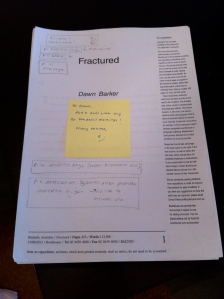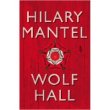 I recently read The Good Father by Noah Hawley, a book that attracted me because of its focus on parenting and personality development. The eponymous good father, Dr Paul Allen, is a rheumatologist whose son, Daniel, is accused of murdering a presidential candidate. As a child, Daniel’s parents divorced, and his father moved to another city and started another family: his presence in Daniel’s life was largely distant and sporadic. The novel deals with how this father tries to defend his son and find out the truth about what happened, while he also deals with his own guilt and sense of responsibility for the trajectory Daniel’s life has taken.
I recently read The Good Father by Noah Hawley, a book that attracted me because of its focus on parenting and personality development. The eponymous good father, Dr Paul Allen, is a rheumatologist whose son, Daniel, is accused of murdering a presidential candidate. As a child, Daniel’s parents divorced, and his father moved to another city and started another family: his presence in Daniel’s life was largely distant and sporadic. The novel deals with how this father tries to defend his son and find out the truth about what happened, while he also deals with his own guilt and sense of responsibility for the trajectory Daniel’s life has taken.
Like other books before it, perhaps most obviously ‘We Need to Talk About Kevin’ by Lionel Shriver, this premise brings the nature-nurture debate to light: are our characters born or made? How important is parenting when it comes to personality development, particularly if that personality is deemed to be disordered, or even criminal? Is a very common occurrence, such as parental separation, enough to make someone commit a crime when thousands of other people who experience the same event do not become criminals? These are the questions that the book wrestles with.
I find in my own work as a psychiatrist that there is an emphasis on motherhood and parenting. There are good reasons for this: mothers are usually the primary caregivers and attachment figures for children, and there is good evidence that maternal mental health has a profound effect on a child’s mental health and security. When a child is taken to see me, it is usually the mother who brings the child along, while the father is often at work. However, I always try to meet the father too as whatever their role, they are a huge part of a child’s life too. When I talk with young people, they talk about their fathers as much as they talk about their mothers, and sometimes it is the fact that fathers aren’t as present as they could be that preoccupies young people – and this is one of the central issues of Hawley’s The Good Father.
While reading the book, I found myself wondering what I would do – as a mother – in this situation. I wondered whether men and women, fathers and mothers, deal with stress and grief differently. We traditionally expect men to externalise their emotions, to need to do something, whereas women tend to internalise more, although these stereotypes are not necessarily true. This novel is interesting because it does focus on the role and emotions of a father: Daniel’s mother plays only a very small role in the book. While Dr Allen does experience many strong emotions, including guilt and denial, he also uses his usual coping mechanisms of intellectualisation and logic – useful in his medical role – to avoid dealing with his true emotional journey as he tries to find out what happened to his son. This is mirrored for the reader by some short chapters which are quite factual with little emotional content. We do however start to see more of the emotional impact on Dr Allen as he has to accept that there is a limit to what he can control, and it is at this point that the book really captured me and was genuinely moving.
I have written before about Donald Winnicot’s concept of the ‘good enough mother‘, a well known concept in psychology. Mothers do not have to perfect, they just have to be good enough at giving their child what he needs, and recognising that this changes over time. At some point, a mother has to stand back and allow their child to become independent, make choices, and learn from the consequences of them. I wonder if this theory is what Hawley had in mind when he chose to call his book The Good Father. Ultimately, Dr Allen is not so much concerned with whether he has been good enough, but in a much more black and white way, whether is he a good father. By inference, if he is not good, then he must have been bad. In the same way, Daniel must be either good or bad. This is what keeps the reader interested: will this father be able to reconcile with himself and accept doubt and shades of grey? Will we find out the truth about whether his son was good or bad? Or is he, like most people, somewhere in between?
You can find out more about the author at http://www.noahhawley.com
*This book was an Advance Reading Copy provided by Random House/DoubleDay (US publisher). The book is published in Australia by Hodder & Stoughton






